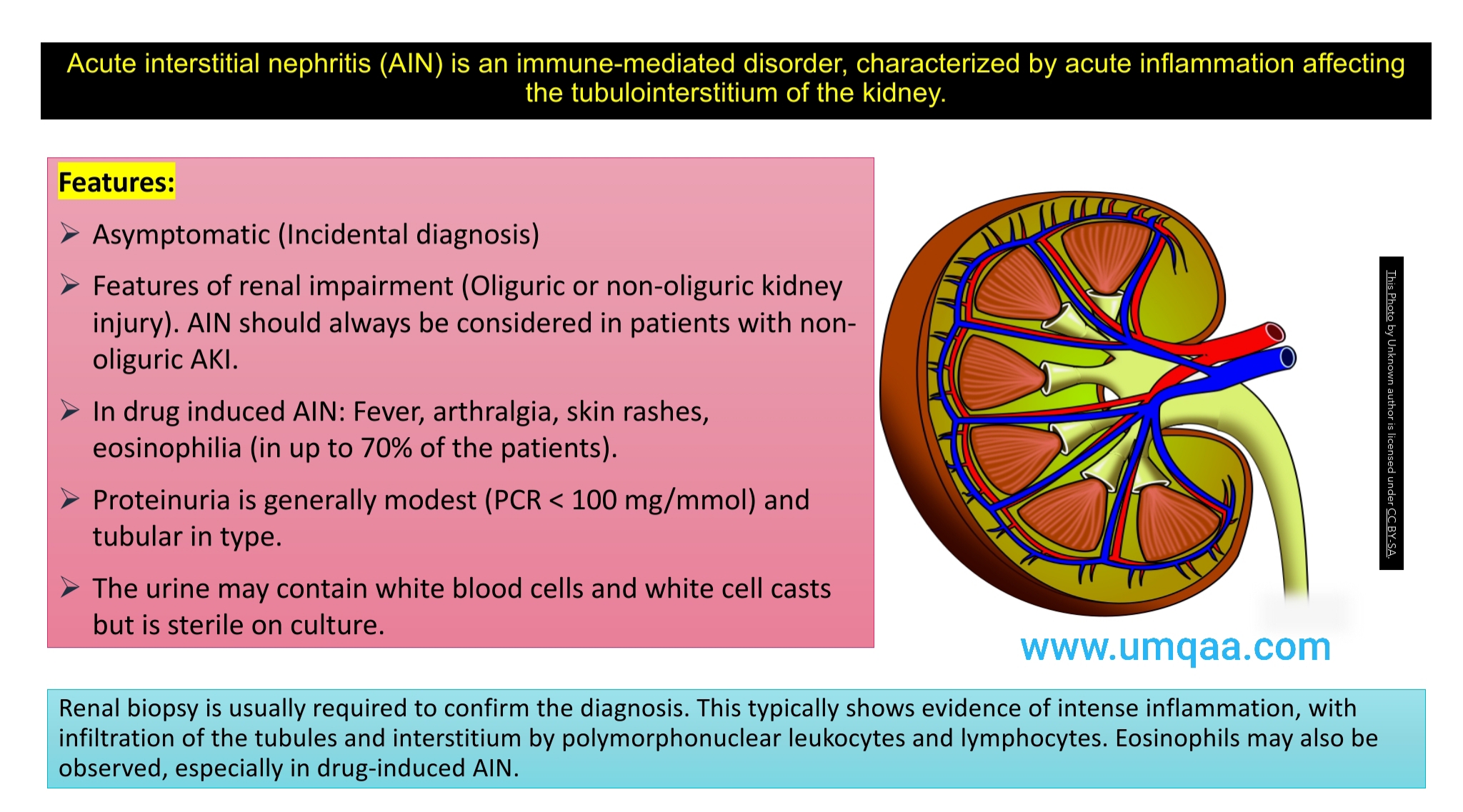Causes of acute interstitial nephritis (AIN):
As tubular and interstitial injury and recovery tend to go hand in hand, it is often called acute tubulointerstitial nephritis (acute TIN). The causes are the same in both terms.
Drugs (70%):
- Antibiotics: Cephalosporins, Ciprofloxacin, Erythromycin, Penicillin, Rifampicin, Sulphonamides
- Analgesics: non-steroidal anti-inflammatory drugs
- Diuretics: furosemide, thiazides
- Miscellaneous: Proton pump inhibitors, allopurinol, carbamazepine, cimetidine, phenytoin, valproate, Mesalazine (delayed)
Infection (15%):
- Bacterial pyelonephritis due to Legionella, Leptospira, streptococci, Mycoplasma,
- Brucella, Chlamydia
- Viruses: Hantavirus, Epstein–Barr virus, HIV, measles, adenovirus
- Others: Tuberculosis, Leptospirosis, Leishmania, Toxoplasma
- In immunocompromised patients (e.g. in transplanted patients): Cytomegalovirus, polyoma (BK) and herpes simplex
Immune:
- Tubulointerstitial nephritis with uveitis (TINU) (5%)
- Transplant rejection
With other multi-system disorders:
- Systemic inflammatory disorders, e.g. Systemic lupus erythematosus (2%), IgG4-related disorder, Sjögren’s syndrome
- Sarcoidosis
- Sickle cell crisis
Toxic:
- Lead poisoning
- Myeloma light chains
- Mushrooms (Cortinarius)
Idiopathic (8%)
Source:
- Kumar and Clark; 10th Edition: 1385
- Davidson 23rd: 402
- Sanjay Sharma: Q 317






0 Comments